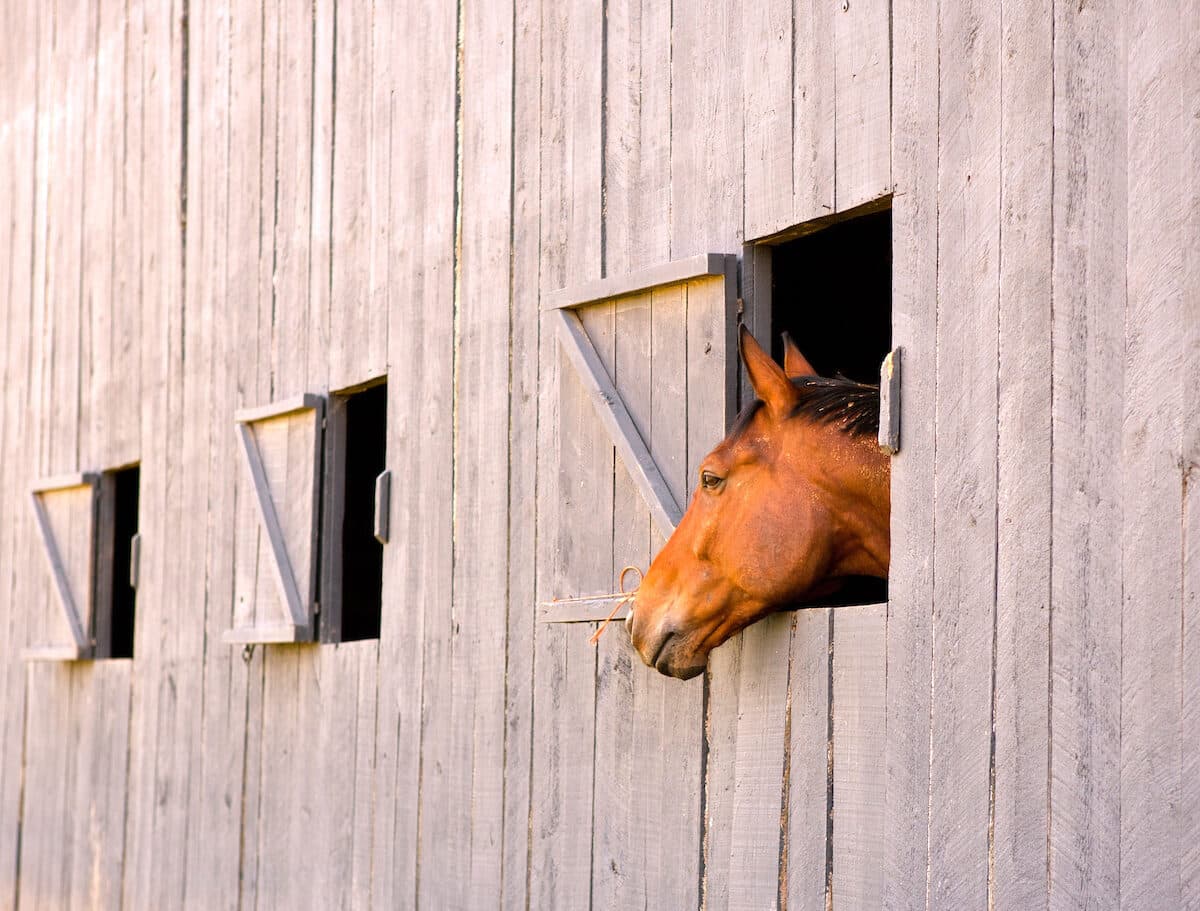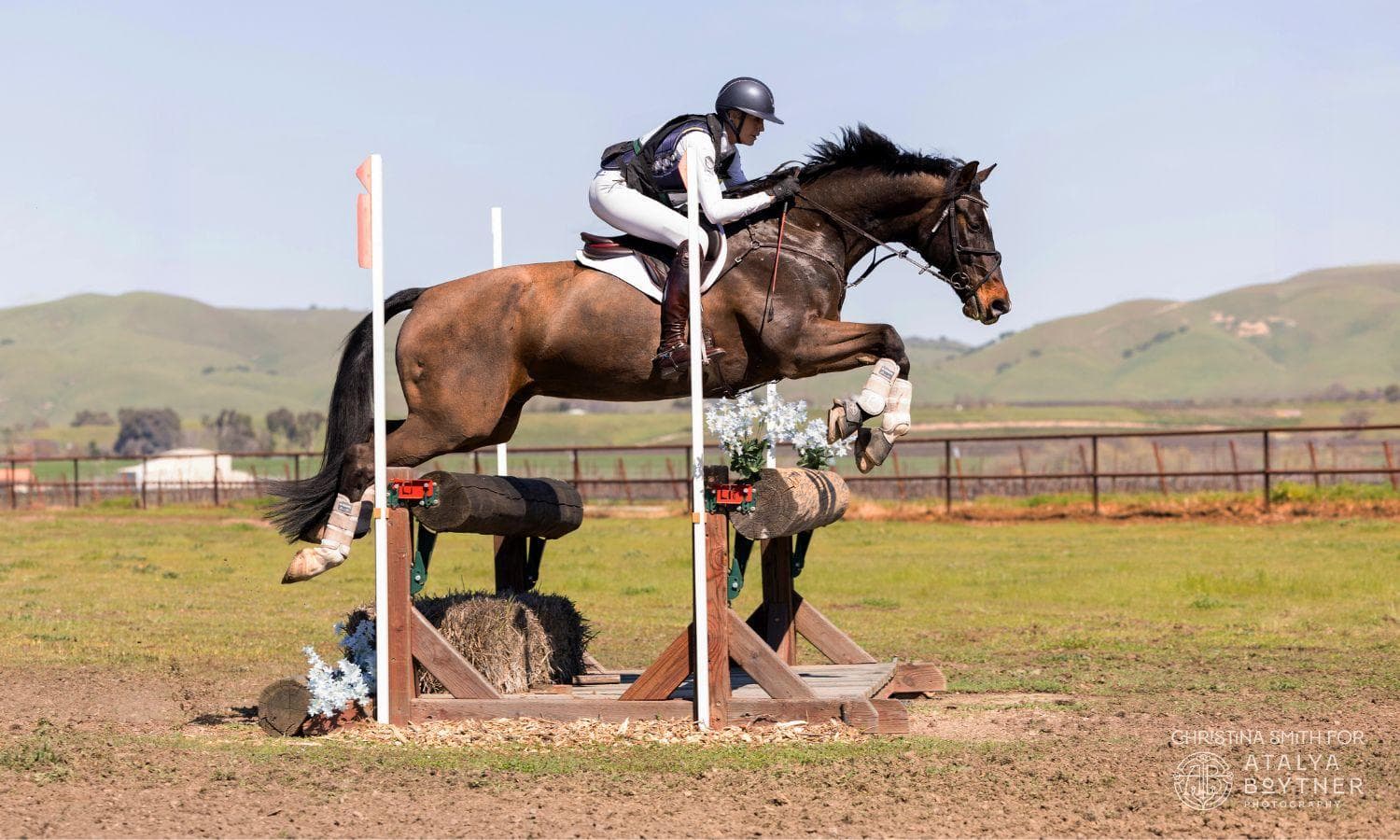Top 10 Tips for Staying Positive During the Pandemic with Melissa Stubenberg

The following is personal anecdotal advice, not professional medical advice. For official recommendations on COVID-19, please visit the Center for Disease Control and Prevention (CDC) website.
In these challenging times, I was asked to share my tips on how to stay mentally and emotionally positive when things are uncertain as well as tips for keeping our farms safe in this age of COVID-19. Who am I? I’m the current Area II Chair, a volunteer position that a few of us older eventers who demonstrate a certain skill at herding cats get asked to fill and are not quite clever enough to say no. I’m a transactional attorney at a large Delaware law firm, a farm owner, and an owner of too many horses, dogs, and yeah, a lot of cats too. I’m also a former show groom, professional stall mucker and farm hand, and I've started a lot of young horses. And like you, I am an eventer. What I am not is an expert in really anything - this is just what I do!
1. Wash your hands. Seriously . . . a lot. I saw a funny thing on Facebook that says wash your hands like you just cleaned your gelding’s sheath with no gloves and are about to each a sandwich. Yup, that image works for me far better than any song to sing while washing my hands. Wipe down the brooms, pitchforks, brushes, etc. — just like you wipe down the gym equipment that some stranger has sweat on before you use it. Clean your tack (ok, we should all be doing this anyway).
2. If you are sick, stay home. Take your temperature each day, and if you have even a mild temperature, stay home. Be considerate of those that work and have horses at your barn. If you are the sole caretaker of your horses, limit who you come in contact with at the barn. If you need help, reach out. The horse community is small and we do what we can to help each other!
3. When you do go to the barn, change your clothes. Just as we do when dealing with contagious diseases with horses, we should do the same for ourselves. Change your shoes and your clothes. Those of us still needing jackets, use one that you only wear at the barn. Anything we can do to try and limit spreading COVID-19 at the farm, plus it helps you not smell to non-horse people!
Dealing with the practicality of social distancing and COVID-19 is one issue, dealing with the anxiety and uncertainty it is causing is another. I’m often under significant stress at my job so was asked for some tips.
4. Keep things in perspective. I’ve lived paycheck to paycheck. I’ve lived not sure where I was going to get a paycheck. I’ve lived on ramen noodles and peanut butter and jelly sandwiches. I do get it. Money stress is a big stress and often does require us to make changes we may not want to make (even more stress). There are not easy solutions but to me, the key to survival is to try and focus on the positives (every little one I can find) and to keep the negative in perspective. Things could be worse (they can always be worse). Perspective and choosing to be positive (no matter how hard) helps me keep anxiety at bay.
5. I remember the Serenity Prayer. It may be a bit corny, but I’ve always found the first verse of the Serenity Prayer a good reminder for me to help ground myself. “God, grant me the serenity to accept the things I cannot change, courage to change the things I can, and the wisdom to know the difference.” None of us are perfect, but when things feel out of control for me, I think of the Serenity Prayer and try to identify what is out of my control and what is in my control. Worrying about what is out of my control is energy that I try and redirect to what is in my control. It works for me.
6. Think of others. Sometimes we get so focused on ourselves and our own problems. I find it can help me to think of others and what I can do for others, no matter how small. A positive word. Send a nice text or call. It doesn’t need to be big, but even doing little things will make you feel better as well as helping someone else. I could be better at this one, so it’s a goal for me to improve.
7. Break things down in to smaller projects. Just as with training horses, often you need to break down an exercise into smaller steps to help them understand. I tend to do that even with complex legal issues or other personal issues. If something seems overwhelmingly tough, I try to break down the problem and address it in small steps. Together with this goes the advice I was given by my college professor Anthony Lake (political science) for writing . . . follow KISS - Keep It Simple Stupid. We all have a tendency to make things more complicated than they really are. This is true with horses, law work, and life. It rarely is really complicated. That said, as Jim Wofford (a longtime trainer of mine) often says, just because it is simple doesn’t mean it is easy.
8. Lean on your horses. Horses have always been a huge stress reliever for me. Riding, whether it is on my rehabbing horses doing their tack walking and two-minute trots (I currently have two I’m rehabbing from soft tissue injuries) or ones that I can actually train on, you have to set that stress aside. I can still remember Jim yelling at me in a lesson when I was a young attorney to leave whatever was stressing me out out of the ring or get off. Yeah, Jim doesn’t mince his words, but it was great advice (and lucky for me, I was able to do just that, I just needed his reminder). Leave everything out of the ring. Focus on the horse. Focus on your riding, your position, and your balance. And before you know it, you have spent 30 minutes not thinking of COVID-19 or anything else stressing. If you can’t do that for the full ride, do it for as long as you can, then get off and groom your horse. It is a skill and it also takes work to develop.
9. Cut yourself a break. Focus on daily goals and put off worrying about the big goals. This will not be forever. The shows will be back. If you are goal-oriented, set some smaller short term goals that are within your control to achieve.
10. Hug a horse - your horse, any horse (well, I have a couple who will bite you, so not them). Hug any horse that will let you. We are eventers and we will kick on.















